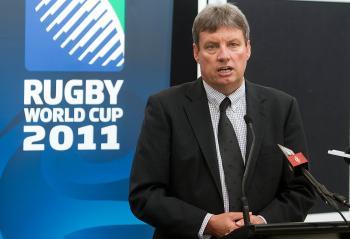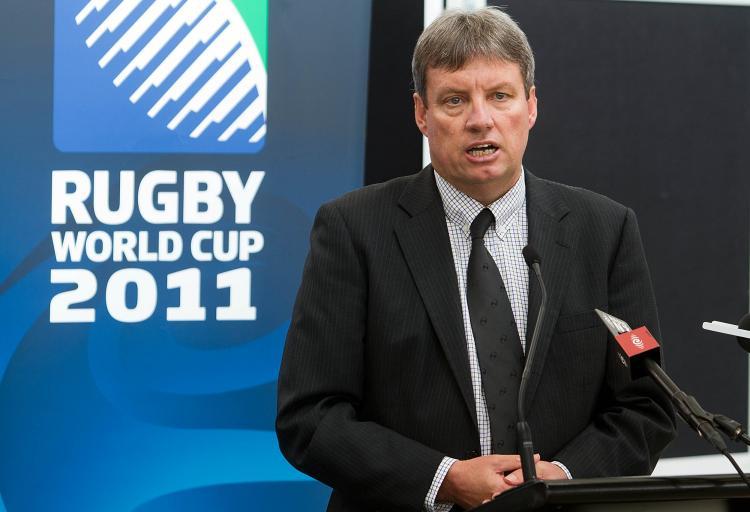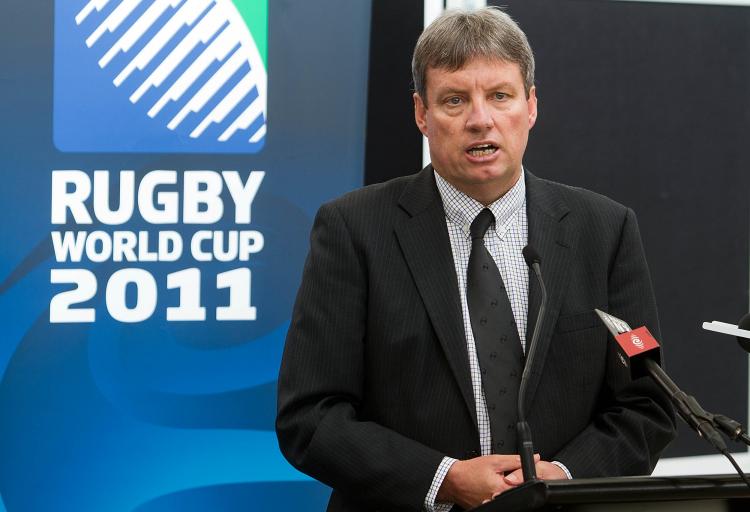Rugby World Cup Comes at a Price
The cost of the Rugby World Cup in New Zealand set for September 9, 2011 is expected to run at a loss, according to a University of Auckland economics professor.

Chief executive officer of the 2011 Rugby World Cup Martin Snedden Marty Melville/AFP/Getty Images
|Updated:




